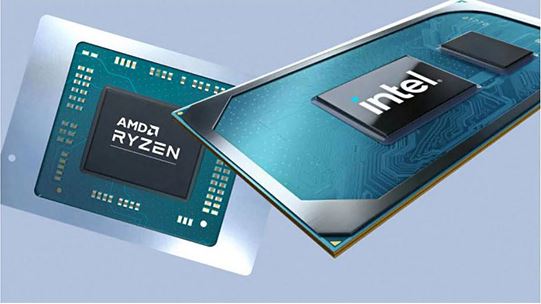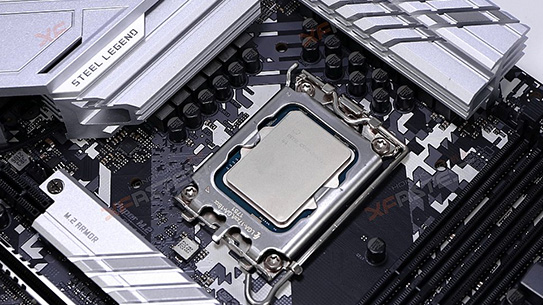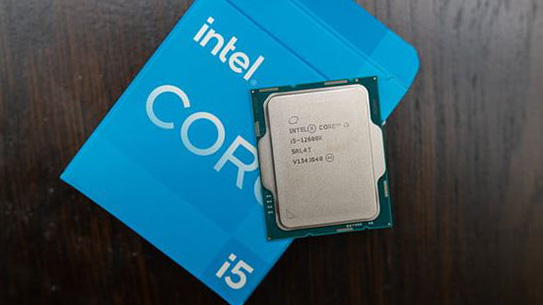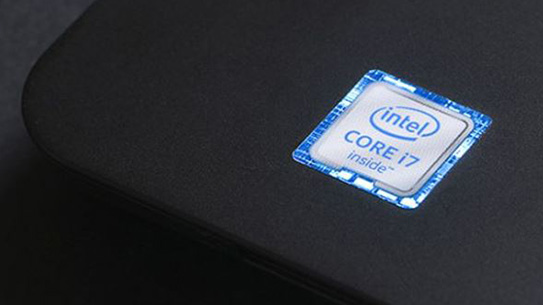
A processor is an integral element to the performance of your PC and you need to consider which processor matches your needs. There are many different types of computer processors available, from a couple of main brands. In this article, we will focus on the Intel Core range and the differences between i3, i5, and i7 processors.
A processor is an integral element to the performance of your PC and you need to consider which processor matches your needs. There are many different types of computer processors available, under a variety of well-known and popular brands. In this article, we will focus on the Intel Core range and the differences between i3, i5, and i7 processors.
What Is a Processor?
A processor - also referred to as the central processing unit (CPU) - is essentially like a computer’s brain. It is the logic circuitry that processes basic instructions that drive the computer.
This piece of hardware allows your desktop or laptop to interact with all of the applications and programs installed on your device. It delivers the information, allowing you to complete tasks such as opening an application or making changes to a file.
Processor cores and clock speeds determine how much information can be transmitted at any given time. The speed at which your processor’s cores and clock speed work together is your computer’s processing speed.
Types of CPU
As computers have improved and developed over time, new CPUs have been developed to deliver faster and better performance. CPUs are differentiated by their age, and the number of cores it has. The more cores a processor has, generally the more powerful it will be.
Intel updates the Core CPU family every 1 or 2 years, by releasing new “generations”. This means that you can tell how old a laptop is by its processor. There can be some overlap between generations, so it is important to bear in mind that processors will be around for a few years after launch.
Intel’s generations were roughly released as followed:
3rd Generation - 2012
4th Generation - 2014
5th Generation - 2015
6th Generation - 2015
7th Generation - 2016
8th Generation - 2017
9th Generation - 2018
10th Generation - 2020
11th Generation - 2021
12th Generation - 2021
What Is the Difference Between i3, i5, and i7 Processors?
Intel’s i3, i5, and i7 processors are the most popular types of processors, and more recently Intel have released an i9 processor too. These Intel processors power thousands of new and refurbished PCs purchased each year.
Choosing the right CPU for you is a big choice. The processor not only has a major influence on the price of your device, but it also determines the types of activities you can do on your compute
Most people go for an i5 processor, without considering whether the more affordable i3 is the right option for them. The bigger the core or the newer the generation does not necessarily mean that it is the best processor for you. It is important to select a processor based on your needs and user habits.
Intel Core i3 Processors
Intel i3 processors are the first processor in the line-up for each generation. Core i3 processors are typically the most affordable processor, as they usually have lower core counts than their higher-grade counterparts.
In the past, most Core i3s had dual-core processors. For recent generations, however, the core count has improved with some i3s having up to four cores on desktop. The dual-core processors also had four threads, known as Hyper-Threading technology. Simply put, this allows multiple threads to operate on each core, allowing more work to be completed in parallel.
This processor type is ideal for everyday users. Whether you are browsing the web or steaming a video, the Intel i3 processor can help you seamlessly complete your to-do list. With an i3 processor, you can easily:
- Work in Word or Excel
- Stream your favourite movies
- Listen to music
- Browse multiple webpages


Intel Core i5 Processors
The Intel i5 processor is the next step up from the i3 processor. They generally perform faster and have a higher number of cores. The i5 processor usually contains between 4 to 6 cores, which is particularly noticeable when using highly demanding and memory-intensive software.
In most instances, the Intel i5 processor also has higher clock speeds. It has a larger cache and can handle a lot more memory. The integrated graphics are also an improvement when compared to the i3 processor.
This processor is ideal for home and business use, as it can handle a lot more jobs at the same time. It is an ideal processor for multitaskers and creatives, such as designers and photographers. The i5 processor is perfect for:
- Complicated tasks like rendering large Excel documents
- Editing photos or sketching digital drawings
- Streaming from multiple websites
- Creating, sharing, and watching 4K content


Intel Core i7 Processors
Intel’s i7 processors offer a distinct advantage to those that need a computer that can keep with intensive use. The i7 processor has even higher core counts, a bigger cache, and a noticeable improvement in graphics performance.
Core i7 processors offer even more power, making them the best processor for using demanding and intense graphic applications. The Intel i7 processor is perfect for advanced video editing, 3D modelling, and playing games with the highest settings.
An i7 processor allows you to:
- Efficiently encode video
- Work smoothly in 3D modelling programs
- Edit 4k UHD content and 360 videos
- Play your favourite games without lag


What About AMD Processors?
AMD processors can be cheaper than Intel Processors but give you a similar level of performance. These processors are efficient compared to the current generation Core series. AMD APUs are also a good option for their good iGPU performance and comparable CPU performance to Core i series.
If you want a processor for everyday use or casual gaming, then Ryzen 3 or 5 APU processors are the way to go. For heavier tasks like video editing, 3D modelling, etc, Ryzen 7 or 9 CPUs or Threadripper should be preferred.
Ryzen CPU's have become very popular in the last few years due to their superior price and performance, and more and more of the devices on Stone Refurb will feature these CPU's in the near future.
When choosing a CPU, first ask what you're going to do with it, then see how much you can budget for it after you've figured out how much you're spending on other components. While processors are important, there's no point in pairing a high-speed chip with weak graphics (unless you aren’t a gamer) or a slow, spinning mechanical hard drive.
If you need any help selecting the perfect device for you, do not hesitate to contact us so that our friendly team of experts can discuss your needs and find the ideal match for you.
